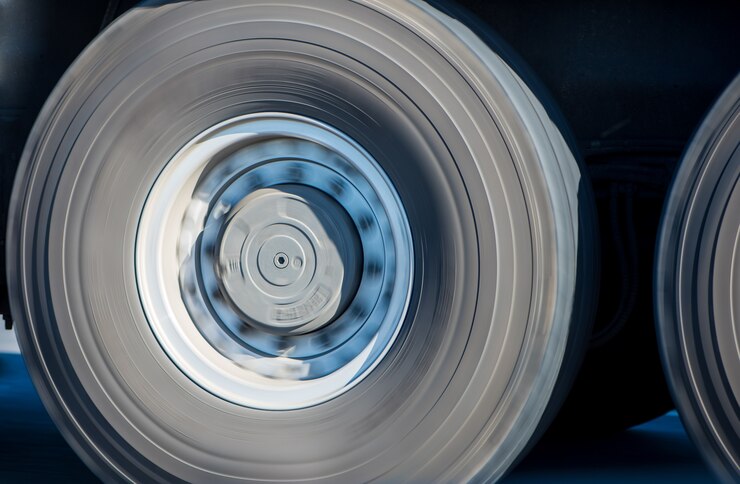Polyurethane wheels are revolutionizing industries with their unique set of properties, making them an ideal choice for a wide range of applications. Their versatility, durability, and resilience have paved the way for innovative uses across various sectors, from manufacturing to healthcare. As industries continue to evolve, polyurethane wheels are playing a crucial role in improving efficiency, reducing costs, and enhancing performance. This blog explores some of the most innovative applications of polyurethane wheels in modern industries, highlighting their growing importance.
What Are Polyurethane Wheels?
Polyurethane wheels are made from a synthetic polymer known for its remarkable strength and flexibility. Unlike traditional rubber or plastic wheels, polyurethane offers a unique combination of softness and durability. The material is known for its resistance to wear, abrasion, and harsh environmental conditions, making it perfect for heavy-duty applications and specialized use cases.
Polyurethane wheels can be found in various forms, from light-duty wheels used in furniture to heavy-duty wheels employed in industrial machinery. Their versatility stems from the ability to adjust the hardness of the material, which directly affects the wheel’s performance and suitability for different environments.
Polyurethane Wheels in Material Handling and Warehousing
One of the most prominent uses of polyurethane wheels in modern industry is in the material handling and warehousing sector. Companies are increasingly opting for polyurethane wheels on carts, trolleys, and industrial dollies due to their durability and ease of movement. Unlike traditional metal or rubber wheels, polyurethane wheels can handle substantial loads while providing smooth, silent operation. Their superior load-bearing capacity makes them ideal for moving heavy products across warehouses and distribution centers.
Polyurethane wheels are also popular for their ability to perform well on different surfaces, including rough or uneven floors. This ensures smoother transport of goods, reducing the risk of damage to both the product and the floor surface.
Polyurethane Wheels in Medical and Healthcare Equipment
The healthcare sector benefits significantly from the use of polyurethane wheels, which are now commonly found in hospital beds, medical carts, and equipment trolleys. Polyurethane wheels offer a combination of quiet movement and easy maneuverability, essential in environments where noise reduction and ease of movement are critical.
In medical environments, where hygiene is of utmost importance, polyurethane wheels provide an advantage. They are non-marking, easy to clean, and resistant to corrosion, which makes them ideal for hospital settings. The durability and long-lasting nature of polyurethane wheels also reduce maintenance costs, making them a preferred choice for medical equipment manufacturers.
Polyurethane Wheels in Robotics and Automation
In the world of automation and robotics, precision and durability are paramount. Polyurethane wheels are increasingly being used in robotic systems, automated guided vehicles (AGVs), and conveyors. Their smooth and consistent performance, coupled with their ability to withstand varying speeds and heavy loads, makes them ideal for these high-tech applications.
The flexible nature of polyurethane also allows it to absorb shocks and vibrations, ensuring smooth operations and reducing wear on other components. This results in greater efficiency and longevity of robotic systems, making polyurethane wheels a go-to material in industries ranging from manufacturing to logistics.
Polyurethane Wheels in Aerospace
Polyurethane wheels are making their way into the aerospace industry, where they are used in aircraft ground support equipment (GSE) like tugs, dollies, and baggage carts. The main advantages of using polyurethane wheels in aerospace are their lightweight properties and their ability to resist wear under heavy loads. Aircraft ground support equipment is subject to constant use, and the wheels must endure frequent and intense movements across harsh, abrasive surfaces like tarmac.
Polyurethane wheels’ excellent resistance to wear, coupled with their shock-absorbing qualities, makes them an ideal material for ensuring that GSE can operate efficiently without constant replacement or maintenance.
Polyurethane Wheels in the Food and Beverage Industry
Polyurethane wheels are also found in the food and beverage sector, where hygiene, durability, and ease of movement are crucial. These wheels are commonly used in food processing equipment, mobile storage carts, and even refrigerated units. Polyurethane’s resistance to oils, fats, and harsh cleaning chemicals makes it an excellent choice for environments that require frequent cleaning and sanitation.
The non-marking nature of polyurethane wheels helps protect flooring in food processing plants, while their ability to operate smoothly on uneven surfaces ensures that goods can be transported quickly and safely, enhancing operational efficiency.
Polyurethane Wheels in Furniture and Appliance Mobility
In the furniture and appliance industry, mobility is key. Polyurethane wheels are becoming the preferred choice for furniture items like office chairs, desks, and other movable items due to their quiet, smooth movement. These wheels are also used on various household appliances, making it easier to move items like refrigerators, washing machines, and stoves.
Polyurethane wheels are particularly valued for their non-marring properties, ensuring that they won’t damage flooring, whether it’s hardwood, tile, or carpet. They also resist wear and tear, meaning furniture and appliances can be moved for years without the need for wheel replacements.
Polyurethane Wheels in Logistics and Transportation
In logistics and transportation, efficiency and reliability are paramount. Polyurethane wheels are used in various forms of transportation equipment, such as hand trucks, delivery carts, and trailers. The material’s ability to resist abrasion while providing smooth rolling action makes it ideal for use in transportation applications.
In addition, polyurethane wheels can be customized for specific environments, such as those requiring resistance to oils, extreme temperatures, or heavy loads. This versatility allows polyurethane wheels to cater to a wide range of logistical needs, contributing to improved operational efficiency.
Polyurethane Wheels in the Entertainment Industry
The entertainment industry has also seen the benefits of polyurethane wheels, particularly in the area of stage equipment and props. These wheels help in the smooth movement of large sets and props during performances, ensuring that changes can be made quickly and quietly. Polyurethane wheels are perfect for this use as they are durable and capable of carrying heavy loads without damaging floors.
Conclusion: The Growing Role of Polyurethane Wheels
Polyurethane wheels are not just another industrial product; they are an essential component of many modern industries, thanks to their versatility, strength, and performance in challenging environments. From material handling and healthcare to aerospace and logistics, polyurethane wheels are proving to be indispensable in improving operational efficiency, reducing costs, and ensuring safety and ease of movement.
As industries continue to look for materials that provide better durability, efficiency, and cost-effectiveness, the demand for polyurethane wheels will only grow. Caster wheel manufacturers in India and other parts of the world are increasingly adopting polyurethane as their material of choice, making it a go-to solution for businesses looking to modernize their equipment and enhance their operations. Whether you are in need of heavy-duty wheels or precise applications, polyurethane wheels offer the flexibility and performance to meet your demands.
With ongoing advancements in polyurethane wheel technology, we can expect even more innovative applications in the years to come, solidifying polyurethane wheels as a key component of modern industry.










